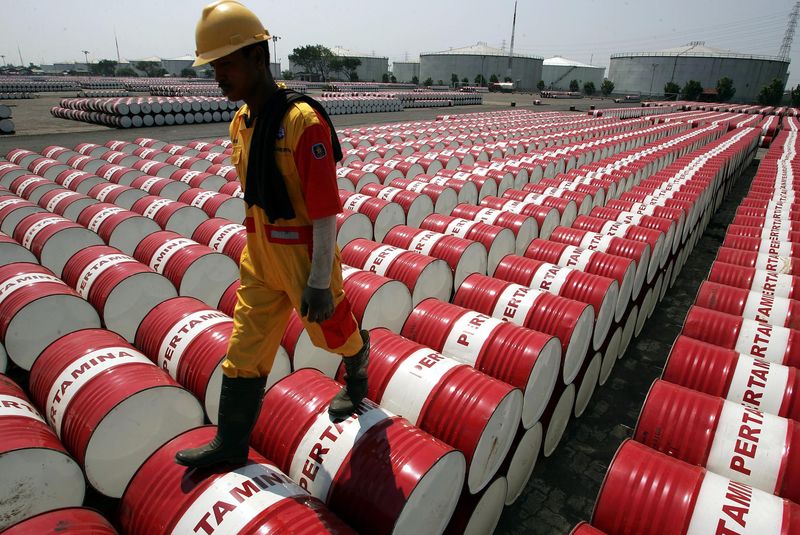Investing.com - Oil prices edged higher during European hours on Wednesday, after falling sharply overnight as market players awaited fresh weekly information on U.S. stockpiles of crude and refined products.
The U.S. Energy Information Administration will release its weekly report on oil supplies at 10:30AM ET (14:30GMT) amid analyst expectations for an increase of 3.8 million barrels.
Gasoline inventories are expected to rise by 343,000 barrels while stocks of distillates, which include heating oil and diesel, are forecast to rise by 1.543 million barrels.
After markets closed Tuesday, the American Petroleum Institute said that U.S. oil inventories increased by 1.4 million barrels in the week ended September 9.
The API report also showed a decline of 2.4 million barrels in gasoline stocks, while distillates showed a rise of 5.3 million barrels on the week.
Crude oil for October delivery on the New York Mercantile Exchange tacked on 38 cents, or 0.85%, at $45.28 a barrel by 4:14AM ET (08:14GMT).
On Tuesday, New York-traded oil futures plunged $1.39, or 3%, after the International Energy Agency warned in its latest monthly report that the oil market will remain oversupplied at least through the first half of 2017 due to a drop in demand growth and rising global supplies.
Meanwhile, on the ICE Futures Exchange in London, Brent oil for November delivery inched up 34 cents, or 0.72%, to trade at $47.44 a barrel. A day earlier, London-traded Brent futures sank $1.22, or 2.52%.
Oil traders continued to weigh prospects that major oil producing nations will freeze output to support the market when they meet later this month.
The Organization of the Petroleum Exporting Countries, led by Saudi Arabia and other big Middle East crude exporters, will meet non-OPEC producers led by Russia at informal talks in Algeria between September 26 and 28.
Chances that the upcoming meeting would yield any action to reduce the global glut appeared minimal, according to market experts. Instead, most believe that oil producers will continue to monitor the market and possibly postpone freeze talks to the official OPEC meeting in Vienna on November 30.
An attempt to jointly freeze production levels earlier this year failed after Saudi Arabia backed out over Iran's refusal to take part of the initiative, underscoring the difficulty for political rivals to forge consensus.
